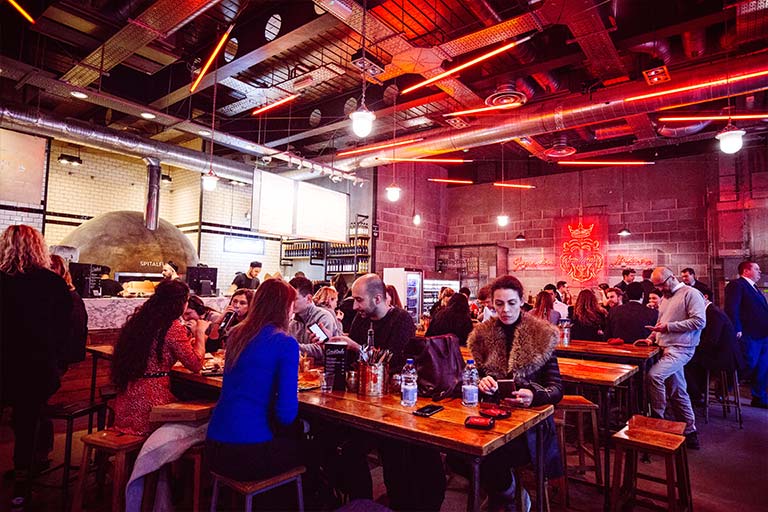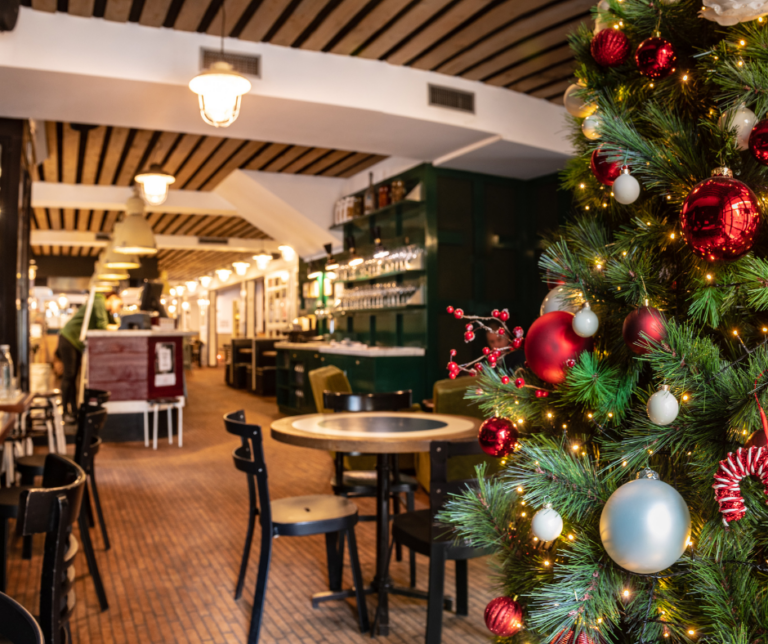
When “order-and-pay-at-table” first entered our worlds, after the first lockdown, Mr Katy and I visited Vagabond in London Victoria. A great time was had by all except for one little mishap. Our first order, done on the new app, ended up at Vagabond Charlotte Street – something we only realised after half an hour of waiting for our drinks. I think the issue is now resolved, but a word of warning to operators: customers like me are far more stupid than you think, please make sure your tech is seamless!
The human touch
Our latest research highlights the critical importance of the human touch in hospitality. But also that, far from it being a case of “the robots are coming for our jobs”, with current staff shortages and industry challenges, our industry needs tech to deliver against modern customer expectations. This is only going to accelerate in 2022. The desire for a human touch and connection is still absolutely at the heart of a memorable customer experience and has in fact grown in importance post-pandemic, even in a quick-service restaurant (QSR) environment. More than 40% of customers say staff friendliness and knowledge is even more important to them now compared with 20 months ago.
However, not all customers are desperate for service with a smile. More than one in ten just want to be left alone while in a QSR venue, for example, with minimal contact with staff. Research shows that the level of desired staff interaction varies based on time of day, occasion and customer type (and a million more things, to be honest!). Customers who want the most interaction from staff are women, those with children and, perhaps surprisingly, Generation Z. Only 7% said they prefer to be left alone while in-venue, compared with 17% of over 55-year-olds.
Staff knowledge expectations
Generation Z and younger millennials also have higher expectations when it comes to staff knowledge about the food on offer, where it is sourced and allergens. They are also more likely to ask staff for personal recommendations compared with older customers. Generation Z are most likely to desire a fast, efficient, and frictionless customer journey, but it’s clear they also crave a connection with frontline staff while in venues. Despite the growth in technology within the customer experience, there is still a firm place for service with a smile, even with this tech-led generation.
Getting the tech right to help customers and staff
The key is clearly for tech and staff to work in harmony. The research suggests, however, that many venues are having tech teething problems, with more than one in three frontline staff saying problems with tech had caused customer service issues in the last three months. We still have a long way to go as we navigate this new era of customer experience.
I think very few people will argue with the idea that technology will clearly play a critical role in the future of success for our industry, and it will benefit both customers and staff. The research identified, for example, that two in three customers are currently noticing staff shortages and say service levels are slipping, while one in five said they’d waited longer to be seated and served than normal. Staff are beginning to feel the strain too. The knock-on effect of shortages is leading to an overload of work on existing staff and subsequent stress and dissatisfaction, with an alarming 64% of those interviewed saying that working in hospitality is less enjoyable now than it was pre-pandemic.
Staff obviously only have a finite amount of time, so it’s critical they are focused on the areas which will deliver the greatest return. Quality and relevant training, great leadership and company culture, as well as emerging technology, are all critical enablers here. And far from feeling threatened by technology, 94% of hospitality staff are confident it can help them do their job, while 64% say their venue embracing time-saving technologies would improve their job satisfaction.
Mobile order and pay
One of the biggest consumer trends to have been fast-tracked by the pandemic is the proliferation and acceptance of the digitalisation of order-and-pay across the hospitality industry. What was seen as ground-breaking 18 months ago is now considered a normal aspect of the customer journey. It didn’t surprise me at all how open customers of all ages are to this new way to pay – more than two in three customers welcome the ability to order and pay on a digital screen in a QSR, for example.
Operators are reaping the benefits of digital order and pay too. Healthy, fast-food brand Abokado recently introduced an innovative self-service kiosk concept in their venues which has resulted in an increase in their average transaction value, all due to a faster turnaround and the kiosk’s upselling feature.
Frictionless technology
I think the key is implementing technological solutions that solve problems without creating new ones. The optimal customer experience should be frictionless. Frictionless technology and design are, in essence, about reducing the energy required by an experience. In other words, the customer experience would be improved without the customer having to do anything more and, in some cases, even doing less. The same can be said for staff too. The technology should save time, save money or add value above and beyond what is reasonably expected of the human staff.




